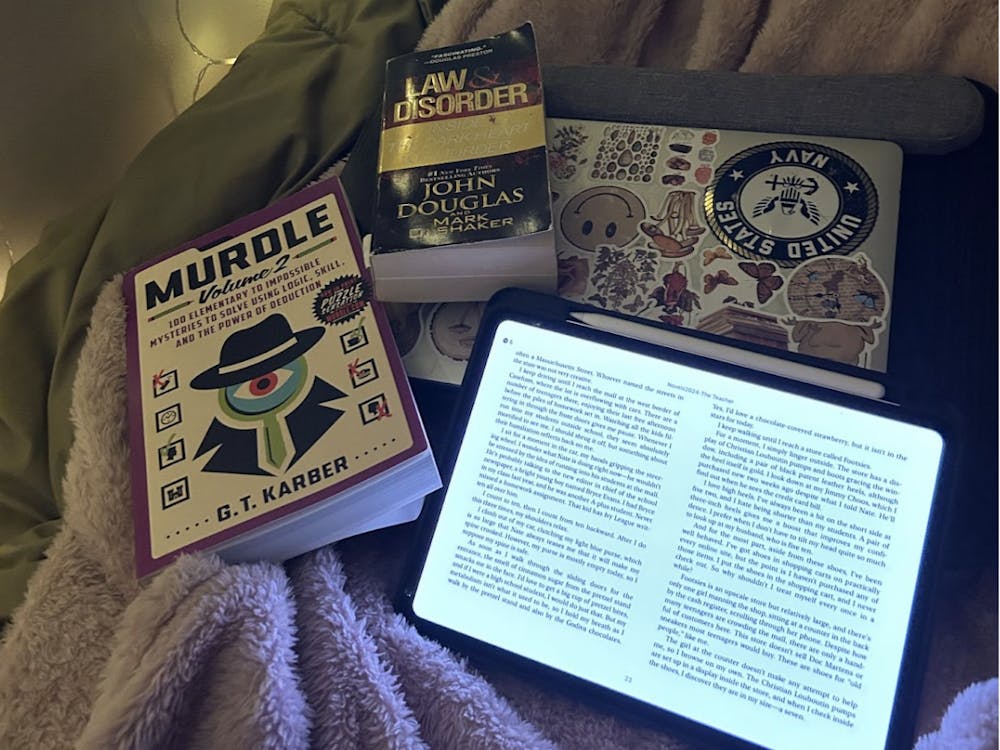
Seventeenth-century British poet and political writer John Milton looked at these same questions that our student body debated. Does tolerating backward religious views promote free speech or suppress it? Who should get an education? To what extent is free speech limited? Milton examines all these questions, and we should listen to his answers. They might add something to the conversations we’re having.
But aren’t people already reading Milton?
Not as much as they should. I can’t argue that Milton has fallen into obscurity, but I’ve noticed that he isn’t getting the attention he deserves. In my high school English courses, we studied the Early Modern period again and again, but we never read Milton. We studied Shakespeare, Marlowe, John Donne, George Herbert, Alexander Pope and even some lesser-known figures — but not Milton. More recently,
I mentioned Milton in one of my English classes this semester, and the other students didn’t seem familiar with him.
Make no mistake — I’m not looking down on my classmates. I understand how they haven’t encountered Milton. I’m majoring in English, and before this year I couldn’t have named any of Milton’s books other than his most famous work, Paradise Lost. While Milton is still getting more attention than some other canonical writers from the English Renaissance (I hadn’t even heard of Sir Philip Sidney until about last month), he deserves even more.
Why aren’t people giving Milton as much attention as they’re giving writers like Shakespeare?
Appreciation for Milton has waxed and waned since the 1600s, usually on account of his radical political views. Why are today’s readers, in particular, not interested in Milton? In a 2015 article for the British newspaper, The Daily Telegraph, the atheistic political commentator Simon Heffer suggested that Milton’s religious subject matter is losing its appeal as audiences become more secular. Could be. After all, Milton’s sonnet “On the Late Massacre in Piedmont” often makes today’s readers uncomfortable when it calls for a religious war against Catholics.
Yet, perhaps the biggest blow to Milton’s popularity was delivered by T. S. Eliot. A 1965 obituary for Eliot in The New York Times Book Review explains how Eliot’s essays on literary theory made Milton unpopular. Eliot criticized Milton’s complicated, Latinate sentence structures and turned audiences off of Milton for most of the last century. Now that the influence of Eliot and the other 20th-century New Critics has declined, let’s consider revisiting Milton.
Even though I have room for Milton on my Kindle, I don’t understand what makes him relevant.
As I mentioned, college students are asking questions about free speech, religious toleration and education that we weren’t asking just five years ago. The most divisive issue from last week’s debate at Hopkins was censorship on college campuses. Their conversation had a Milton-shaped hole in it: Milton gives a seminal defense of the free press in his prose polemic Areopagitica. Areopagitica had so much influence that echoes of Milton’s argument show up in America’s Bill of Rights, according to an English professor at Princeton, Nigel Smith, who led a seminar that I went to. Yet, the debates that I hear over freedom of speech tend to leave out the Miltonic argument.
Today’s arguments in favor of free speech emphasize Americans’ right to offend other people, whereas Milton’s argument emphasized how we need to understand evil in order to oppose it. Revisiting Milton might move the free speech debate in a new direction, closer to a solution.
Though Milton speaks to us now, will he still be as relevant in 10 years?
Hopefully not. If we’re lucky, the current state of political craziness will end soon. If the current political turmoil dies down, then so will Milton’s relevance. Nevertheless, even if Milton weren’t important, he’d still be worth reading because of his artistry. Milton’s talent should earn him not only a few classes on the syllabi for high school English courses but also a place in pop culture.
Milton’s work has such an ambitious scope that reading it can reveal unique approaches to politics, religion and literature. Or, as the English Romantic poet William Wordsworth put it, “Milton! thou shouldst be living at this hour: / England hath need of thee: she is a fen / Of stagnant waters...”





